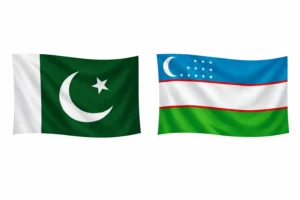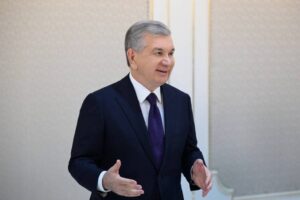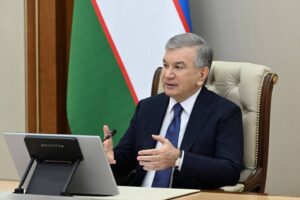Uzbek PM meets Al Gergawi

Uzbek PM meets Al Gergawi.
DUBAI-TASHKENT,TGO: Abdulla Aripov, Prime Minister of the Republic of Uzbekistan, held a meeting with Mohammad bin Abdullah Al Gergawi, Minister of Cabinet Affairs, during which they reviewed the achievements stemming from the strategic partnership for government modernisation between the two sides, and the new areas that will be focused on during the next stage.
The meeting was attended by Abdullah Nasser Lootah, Director-General of the Prime Minister’s Office at the Ministry of Cabinet Affairs, Khalfan Juma Belhoul, CEO of the Dubai Future Foundation, and a delegation from the UAE government.
The two sides discussed the achievements of the strategic partnership during the past three years, its future prospects for the next three years, and ways to strengthen it through launching programmes and initiatives that seek to enhance government work, develop work programmes, update its methodologies in various sectors, and transfer them to advanced levels through the exchange of expertise and experiences between the two governments.
The governments of the UAE and Uzbekistan had launched a new phase of joint cooperation, within the framework of the strategic partnership for government modernisation, by signing a Memorandum of Understanding (MoU) that included extending the partnership for three years and expanding its horizons to include 10 vital areas for modernising government work, including the financial, educational and economical sectors, government leaderships, food security and agriculture, ports and customs.
The extension of the strategic partnership comes in reflection of the distinguished bilateral relations, and to build on the success of the partnership and the achievements that have been made between the two governments since its launch in 2019, within the frames of 27 axes that included launching joint initiatives and projects by benefiting from the experience of the UAE government in government accelerators, government quality and services, smart and strategic applications, national plans, government performance, government innovation, leadership programmes and capacity building, programming, the future of education and the economy, global competitiveness, and ease of conducting business, among other fields.


